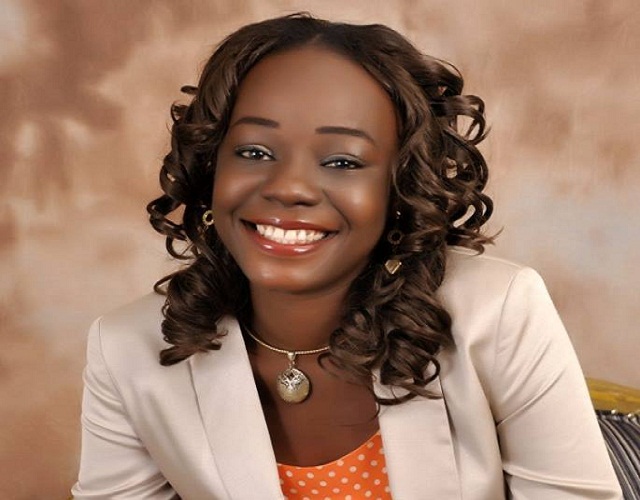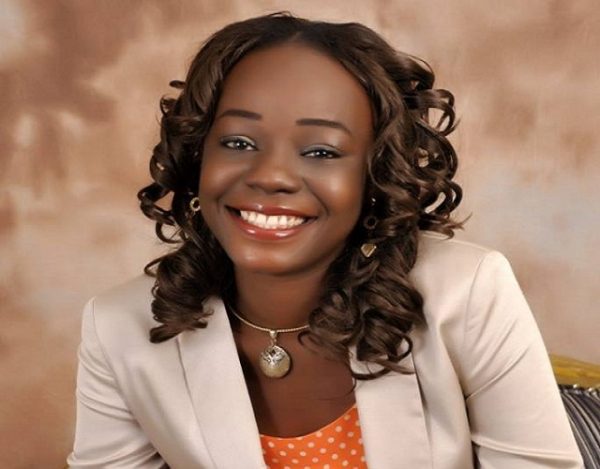One sunny day in 2010, Mirian Chibuzor Azubuike arrives in Bauchi State to serve her country under the NYSC programme. She has spent days crying her eyes out, posting letter in hand; 10 corps members had lost their lives to post-election violence in Bauchi less than two months prior. After hours of sobbing “why me?” she makes up her mind – like many other youth corps members – to go and then redeploy as soon as she can. She has no idea where she will end up, but she is determined to make impact during her service year.
Mirian was unable to redeploy. If she had, she probably would not be the author and public speaker that she is today, and she would not be sitting in the studio with Nasco Moments host, Joy Isi Bewaji, sharing her story.
In 2011, eight months into her service year, Mirian was a reporter with Bauchi Television, her place of primary assignment, when in the course of her work she discovered a village called Bigi Tudunwada. The people of this village, 6000 of them, all drank from one well, which dried up every harmattan. There was not a single borehole in this village, located in a remote part of the state capital. Nearly every health condition the villagers suffered was related to bad water. Mirian decided that this was where she would make a difference. There are many excuses not to get involved in community service, but thanks to Joy Bewaji’s dexterous interrogation, Mirian’s experience answers each one.
1. I don’t have enough money to make a difference.
“Community service is not just you; it’s you and the community,” Mirian says. She was not alone. After seeking permission from the NYSC secretariat to take up this project, she started writing letters, seeking funding from the government, ministries, Bauchi Television where she worked, and Bukoba Water and Sewerage Authority (BUWASA), an agency which provided water to rural communities, amongst others. Though BUWASA could not take on the project because of their budget, they offered to subsidise it.
Mirian believes in the saying, “If you want to go fast, go alone, but if you want to go far, go with people.” She sought help, and got many sponsors for the project. Even the poor villagers taxed themselves N10 each for the pump handles.
As the saying goes, “Little drops of water make an ocean”. With two thousand naira here, and three thousand naira there, the first ever borehole in Bigi Tudunwada was sunk in less than 4 months.
2. I have a job, I don’t have time.
We make time for what we consider important. Mirian was a corps member with a job at a TV station, as well as other duties and responsibilities that are part of the NYSC year. Yet, she was able to make out time to bring water – life– to a community, and write her name in the sands of time.
3. I don’t speak their language so they won’t trust me.
It turns out when it comes to survival, such sentiments are put aside. They needed water. They were not interested in whether she was Igbo or not. The little children called her “black oyibo” in Hausa. The villagers were very hospitable to her and the Hausa translator who went with her. They trusted her, and cooperated with her.
4. It’s the government’s responsibility, not mine.
It sounds crazy that a village in Nigeria with 6000 people would be without potable water in 2011, and it took a young girl, a youth corper, to change that. What is the government doing??? “We are the government,” Mirian says. She believes that in Nigeria, we should stop complaining. Instead we should take up any area we are dissatisfied with, and throw ourselves into it, and get support.
If individuals take up community projects, wouldn’t that make our government redundant? Mirian doesn’t think so. Rather, she seems to consider community service as a way to inspire our leaders and get them to work – a vital component of the office of the citizen. If she had not made the move, she wouldn’t have gotten the support she did.
Many have argued that NYSC is tedious and unsafe for our youths, and should be scrapped. Again, Mirian does not agree. “When you have a leg or arm injury, do you cut off your arm or leg? No. You treat it,” she says. What the NYSC needs, she believes, is reform. “Corps members have given so many communities hope, they’ve impacted lives greatly, they’ve reached the unreached. It’s one of the most powerful schemes this country has. The young people should be encouraged.”
Mirian’s story is documented in her book, The Girl Who Found Water, which she describes as a manual for anyone wishing to get into community service. It is available at Terrakulture, Konga, Jumia, CMS Bookshop, Glendora Books. The Director General of the NYSC gave Mirian approval to speak at NYSC camps, and she has spoken to over 7000 young Nigerian graduates, inspiring them to get into community service. She now has an NGO that seeks to help communities without potable water. She found herself by living a life in service to others.
How will you serve a community today?
As usual, one NASCO goody bag is up for grabs for the lucky listener who gets the Nasco Trivia question for this week right: Can you name 3 ingredients in Nasco Frostyz Cornflakes? Send your answer to 08033286604 or tweet it using the hashtag #NascoMoments and it could be you!


